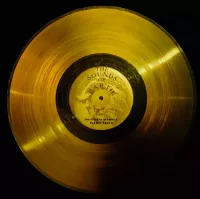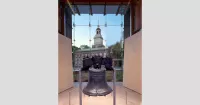Metalcore is a fusion genre blending extreme metal and hardcore punk, emerging in the 1990s US and gaining popularity in the 2000s. It typically features aggressive verses and melodic choruses alongside breakdowns for moshing. Defining characteristics include low-tuned guitars, double bass drumming, and polished production. Vocal styles commonly alternate between aggressive screaming/roaring and clean, melodic singing. Lyrical themes often focus on personal, introspective, and emotive subjects.
February 1985: Maximumrocknroll refers to Black Pyramid as "heavy-metal core"
In February 1985, Maximumrocknroll referred to Richmond band Black Pyramid as "heavy-metal core", marking an early instance of using the term in relation to a band's sound.
December 1985: Maximumrocknroll refers to False Confessions as "metal-core"
In December 1985, Maximumrocknroll referred to Oxnard band False Confessions as "metal-core", showcasing the evolving terminology around the genre.
May 1986: Maximumrocknroll refers to Desecration as "death metal core"
In May 1986, Maximumrocknroll referred to Mesa band Desecration as "death metal core", indicating a further refinement of the term to describe the band's specific style.
December 1986: Maximumrocknroll refers to Last Will as "ghoulish metal/core"
In December 1986, Maximumrocknroll referred to Austin band Last Will as "ghoulish metal/core", demonstrating the continued use of the term with various descriptive prefixes.
1990: Overcast forms and Converge forms
In 1990, Overcast formed, spearheading the early metalcore scene in Boston, Massachusetts. Also in 1990, Converge formed in Boston. The band's experimental attitude, emotional lyrics and attention to dynamics led to them becoming one of the most influential bands in the genre.
1991: Integrity releases Those Who Fear Tomorrow
In 1991, Integrity released their debut album, Those Who Fear Tomorrow, which merged hardcore with apocalyptic lyrics and metal's guitar solos and chugging riffs to create one of the primeval albums in the genre.
1992: Starkweather releases Crossbearer
In 1992, Philadelphia's Starkweather released their album Crossbearer, which merged early metal's grooves and dark atmospheres with elements of hardcore.
1993: Ringworm releases The Promise
In 1993, Ringworm released their debut album, The Promise, which made use of a style closer to crossover thrash while also putting a heavy emphasis on breakdowns.
1995: Release of At the Gates' Slaughter of the Soul
In 1995, the Swedish melodic death metal band At the Gates released their album Slaughter of the Soul, which is considered highly influential to the development of modern North American melodic metalcore.
1996: Merauder releases Master Killer
In 1996, New York City's Merauder released their debut album Master Killer, merging the sounds of metalcore, earlier New York hardcore and the newly emerged beatdown hardcore style.
1997: Hatebreed releases Satisfaction is the Death of Desire
In 1997, Hatebreed released their debut album Satisfaction is the Death of Desire, which helped them achieve underground success and holds the record for Victory Record's best selling debut album.
1997: Shadows Fall releases Somber Eyes to the Sky
In 1997, Shadows Fall released Somber Eyes to the Sky, marking one of the earliest releases of the melodic metalcore style.
1998: Kurt Ballou opens GodCity Studio
In 1998, Converge's guitarist Kurt Ballou opened the recording studio GodCity Studio, and would go on to record many of the most influential subsequent hardcore records from the city.
1999: Early Melodic Metalcore Releases
In 1999, several albums were released which began to incorporate elements of melodic death metal and formed an early version of what would become the melodic metalcore genre. These included Undying's This Day All Gods Die, Darkest Hour's The Prophecy Fulfilled, Unearth's Above the Fall of Man, and Prayer for Cleansing's Rain in Endless Fall.
September 2001: Converge Releases Jane Doe
On September 4, 2001, Converge released Jane Doe to universal critical and fan acclaim, which influenced the development of the sound of other U.S. bands like Norma Jean and Misery Signals as well as international acts. Terrorizer Magazine named it their 2001 Album of the Year.
2001: Avenged Sevenfold releases Sounding the Seventh Trumpet
In 2001, Avenged Sevenfold released their debut album Sounding the Seventh Trumpet, which was a metalcore album.
2002: Killswitch Engage's Alive or Just Breathing reaches number 37 on the Heatseekers Albums chart
In 2002, Killswitch Engage's Alive or Just Breathing reached number 37 on the Heatseekers Albums chart, marking an early commercial success for the band.
2003: Avenged Sevenfold releases Waking the Fallen
In 2003, Avenged Sevenfold released Waking the Fallen, which was also a metalcore album.
July 2004: Killswitch Engage, Shadows Fall, and Atreyu Albums Chart on Billboard
In July 2004, Killswitch Engage's The End of Heartache, Shadows Fall's The War Within, and Atreyu's The Curse peaked at numbers 21, 20, and 36 on the Billboard 200, respectively. Also Unearth's The Oncoming Storm peaked at number 1 on the Heatseekers Albums chart on July 17, 2004.
June 2005: Waking the Fallen Sales Reported
On June 15, 2005, it was reported that Waking the Fallen had sold 172,253 copies in the United States, according to Nielsen SoundScan.
2005: Norma Jean's O' God, the Aftermath nominated for Grammy
In 2005, Norma Jean's O' God, the Aftermath was Grammy award nominated for Best Recording Package.
2005: Billboard article discusses Vision of Disorder's influence
In 2005, an article by Billboard magazine stated that "with seemingly every local teen waving the VOD banner circa the mid/late '90s, it seemed as though it was only a matter of time before VOD would become the band to take 'metalcore' to a massive audience".
2006: Atreyu's A Death-Grip On Yesterday Peaks at Number 9 on Billboard 200 and Unearth's III: In the Eyes of Fire peaked at number 35 on the Billboard 200.
In 2006, Atreyu's third studio album, A Death-Grip On Yesterday peaked at number 9 on the Billboard 200 and Unearth's album III: In the Eyes of Fire peaked at number 35 on the Billboard 200.
2007: Atreyu's Lead Sails Paper Anchor Peaks at Number 8 on Billboard 200, and Killswitch Engage's The End of Heartache Certified Gold
In 2007, Atreyu's Lead Sails Paper Anchor peaked at number 8 on the Billboard 200. Killswitch Engage's 2004 album The End of Heartache was also certified gold by the Recording Industry Association of America (RIAA) in 2007.
2008: Matt Fox claims term "metalcore" was in use before Shai Hulud
In 2008, Shai Hulud guitarist Matt Fox stated in an interview that the term 'metalcore' was already being used to describe bands before his band started releasing music.
2008: Unearth's The March Peaks at Number 45 on the Billboard 200
In 2008, Unearth's album The March peaked at number 45 on the Billboard 200.
July 2009: Waking the Fallen certified gold by the RIAA
On July 17, 2009, Waking the Fallen was certified gold by the RIAA.
2009: Killswitch Engage's As Daylight Dies certified gold
In 2009, Killswitch Engage's 2006 album As Daylight Dies was certified gold by the Recording Industry Association of America (RIAA).
2010: The Chariot's Long Live listed as one of Kerrang!'s "21 best U.S. metalcore albums of all time"
In 2010, The Chariot's Long Live was listed as one of Kerrang!'s "21 best U.S. metalcore albums of all time".
2014: Jorge Rosado claims Merauder coined the term
In a 2014 interview, Jorge Rosado of Merauder claimed that he and his band coined the term 'metalcore'.
2015: Metal Hammer article discusses Hatebreed's influence
In 2015, a Metal Hammer article stated that Hatebreed actively went out of their way to become the hardcore band metal fans listen to, differentiating them from bands like Madball.
Mentioned in this timeline
The United States of America is a federal republic located...
CBS is a major American commercial broadcast television and radio...
CNN Cable News Network is a multinational news organization founded...

Music is a cultural universal involving the arrangement of sound...

Philadelphia or Philly is Pennsylvania's most populous city and the...
Poison is any chemical substance that can cause harm or...
Trending

1 hour ago Letitia James Seeks Dismissal of Fraud Case, Citing Trump's Animus As Fuel
1 hour ago Ireland faces Japan at Aviva Stadium: Farrell announces team for anticipated rugby match.
1 hour ago Journey Announces Farewell Tour After 50 Years, But Neal Schon Hints at More
2 hours ago DP World Tour Highlights Fun Moments, Leaderboard Drama, and Fan Engagement for 2025

2 hours ago Djokovic and Musetti set for Athens final after Djokovic's semi-final victory.

2 hours ago Brian Daboll nearly fired? Coaching rumors swirl around Giants head coach position.
Popular

Nancy Pelosi is a prominent American politician notably serving as...

Zohran Kwame Mamdani is an American politician currently serving as...

William Franklin Graham III commonly known as Franklin Graham is...

Chuck Schumer is the senior United States Senator from New...
Abigail Spanberger is an American politician who served as the...

Gavin Newsom is an American politician and businessman currently serving...